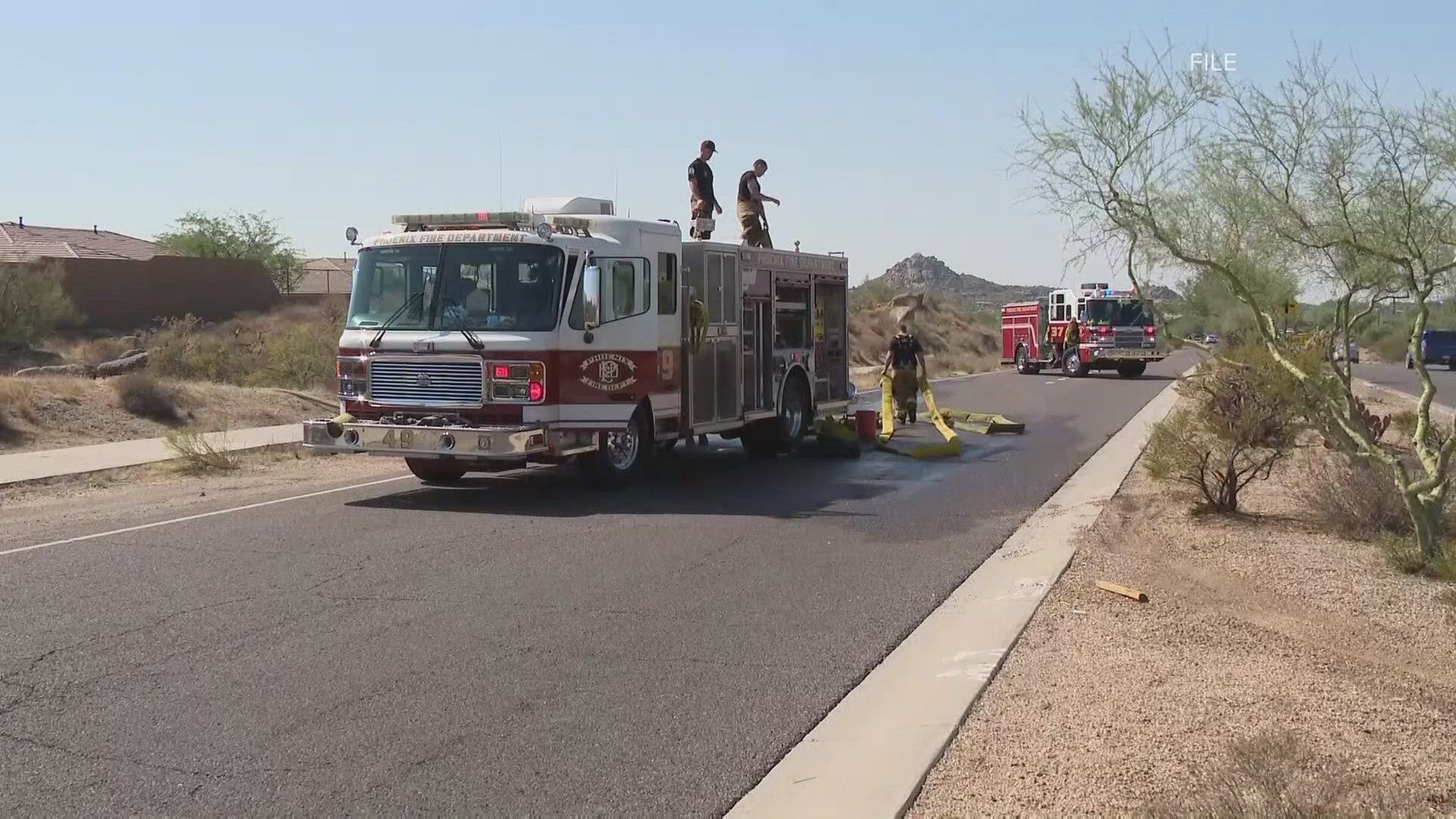PHOENIX — A new study out of the University of Arizona is showing forever chemicals are altering the genes of firefighters, making them more likely to be diagnosed with prostate cancer.
"It's really important that we figure out ways to help them keep themselves safe," Dr. Jeff Burgess, a professor at the Mel and Enid Zucherman College of Public Health at the University of Arizona, said.
Burgess is behind the new study that looks at firefighter's risk of prostate cancer.
"We were looking at the effect of both the number of years of firefighting and the concentration of specific forever chemicals, and what we found was that both things contributed to the amount of DNA methylation on prostate cancer genes," Burgess said.
Forever chemicals, or PFAS, are in a lot of things humans are exposed to, but firefighters are more exposed through things like the chemicals in firefighting foam and their gear.
"It would suggest that we really need to focus on reducing their exposure to this one forever chemical in any way that we can," Burgess said.
The International Agency for Research on Cancer (IARC) classified occupational exposure as a firefighter as carcinogenic, in 2022.
"There's not a firefighter on the job right now that doesn't know somebody that either has cancer or has died from cancer," Scottsdale Fire Assistant Chief Eric Valliere said.
For 33 years, Valliere has been a part of the fire service and said he's seen changes over that time.
"In the old days, it used to be a pride thing to walk around with dirty turnouts and a dirty helmet. I have one hanging on the wall that's been cleaned as well as I can. But it was one of those things that you've been to a lot of fires, it proved that you did the job right. And we're, we're realizing now that that that doesn't prove anything," Valliere said. "And going home and having a healthy, not only healthy career, but a healthy life outside of the fire service is the most important thing."
Valliere said Scottsdale is doing things to reduce PFAS exposures, like using cleaned turnouts through a turnout exchange program, keeping things that are off-gassing separate from living quarters and washing turnouts before disconnecting from the air supply at a fire, among other steps.
"We're going to get exposed to things in this job, that's just the profession we've chosen, right? But everything we can do to reduce those risks is really what we're at," Valliere said.
In addition, Scottsdale Fire has been working with Burgess on another study to look at ways to reduce PFAS chemicals in firefighters more quickly, Valliere said.
While also trying to take the foam with the chemicals out of the system, Valliere said they're waiting on new foam and gear without the chemicals.
"We have PFAS in our turnouts because it repels the water and it helps to protect us a little bit better. But we never realized that putting those on could expose us to that type of chemical. So we're working with fabric manufacturers to see if they have new technologies, and there's new ones coming out that will reduce or eliminate the PFAS in our turnouts," Valliere said.
Up to Speed
Catch up on the latest news and stories on the 12News YouTube channel. Subscribe today.

